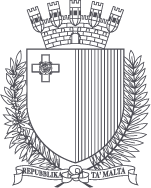Excellencies, Distinguished Guests, Ladies and Gentlemen…
It is my great pleasure to present the Ministry of Foreign Affairs and Trade Promotion’s first consultation document leading to a consolidated Strategy for Africa: a strategy which will clarify our national priorities and sharpen our focus in our relations with the continent of Africa over the coming years.
Malta has engaged with the Mediterranean-bordering countries of North Africa since time immemorial. We are physically close to our neighbouring countries in the Maghreb, sharing many commonalities and a history shaped by the Mediterranean Sea.
Perhaps less well-recognised, beyond the Maghreb, Malta has also enjoyed strong links with the rest of the African continent, initially through the work of missionaries and aid workers but also through Malta’s political engagement with the newly-independent countries of Africa. We have continued to consolidate our links in recent times through membership of the Commonwealth and within the European Union. The Valletta Summit of 2015, which was hosted by Malta, sent an important message, namely that migration cannot be addressed as a singular issue. Malta has consistently taken a proactive role in seeking international solutions to the challenges of our times.
The launch of our National Strategy comes at the opportune time. Africa is very much on the agenda at the EU and a strong signal lies in the fact that on the very first day of the new European Commission, President Ursula von der Leyen visited Addis Ababa for bilateral meetings with the Ethiopian government and the African Union.
In these changing times, this Africa Strategy provides us with a pathway to the future which recognises Africa’s diversity as a continent of more than 50 countries. It also challenges us to update our appreciation of this continent, our analysis of trends and developments across Africa, and the way in which Africa relates to the wider world.
This Strategy also acknowledges the significant progress in terms of economic and social development which is taking place throughout the continent; changes which Malta applauds, and which need to be recognised more widely.
Africa is an emerging economic force.
Malta’s National Strategy serves as a guide for the development of our relations with the continent of Africa in the period ahead, ensuring that we are not simply passive players in a changing world but active contributors to solutions and worthy creators of mutually-beneficial opportunities for Malta and for Africa. The Strategy responds to the demands of a changing Africa and charts how we can deepen relations through the values of trust and the dialogue of partnership.
The proposals to build on our strong existing relationships include a greater role for Maltese business, a role that will help create new investment and trade which will be mutually beneficial to Malta and Africa. There is a clear message emerging, which we must heed. Africa does not simply want aid. It wants to develop and grow. In the words of Ghanaian President Nana Akufo Addo, ‘a future beyond aid’ through more private sector investment, more trade, more joint ventures, and more business-to-business contact overall.
I assure you today that Malta hears this message loudly and clearly. Malta-based enterprises are well-placed to play a greater role in Africa and we commit ourselves in this Strategy to helping with the research, the networking, and the groundwork that can identify and facilitate two-way trade and investment.
The Strategy also highlights the importance of development and the sharing of good practice to empower a rising Africa by unleashing the potential of every person, irrespective of gender, creed, or orientation. In this regard, I wish to highlight the good work being done by Maltese civil society through the Malta Government’s Overseas Aid programme which proudly flies our flag and shares our values of solidarity and goodwill.
Through this Strategy, Malta will advocate for growth, for dignity, and for empowerment. We will seek to be true partners through our positions and policies within the European Union, the United Nations, and elsewhere.
Our size has never impeded us from engaging with vision and verve. This Strategy opens the door to new opportunities, to innovation, and to a new way of working. It is an exciting prospect that demands of us that we learn to move on from the monochrome interpretation of Africa to embrace the opportunities of a continent of growth.
Doing this requires a bold commitment to change and a frame of mind to be part of the solution rather than passive onlookers. To make this a success we need to be part of the narrative of growth and opportunity in Africa.
This document provides structure to our engagement, and reassurance that our commitment is clear and unwavering. I have had the privilege of visiting Africa several times in my capacity as Minister for Foreign Affairs and Trade Promotion. I am excited by this Strategy and I look forward to taking it forward through official visits and trade missions to Ghana, Côte D’Ivoire, and Ethiopia planned for this year.
The Strategy is now open to the public for consultation with my Ministry’s firm commitment that it will be implemented with determination to create wealth and opportunity in changing times.
As an African proverb goes: Tomorrow belongs to the people who prepare for it today.






